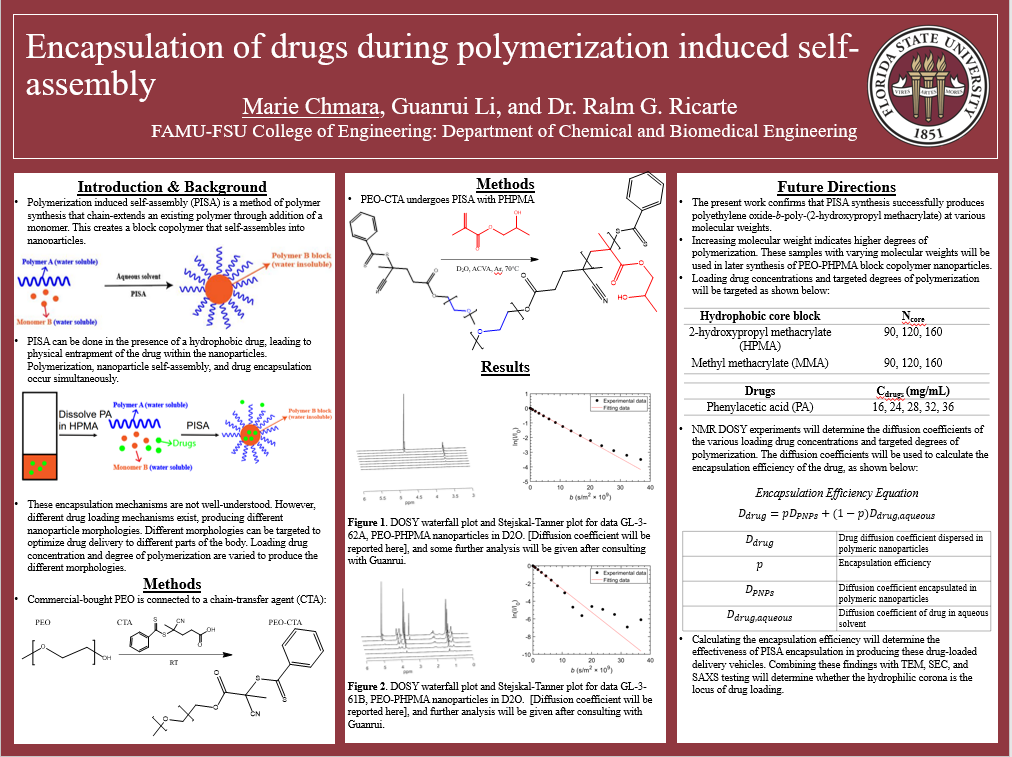Research Symposium
23rd annual Undergraduate Research Symposium, April 6, 2023
Marie Chmara Poster Session 2: 1:30 pm - 2:30 pm/ Poster #363

BIO
Marie Chmara '24 grew up in Tampa, Florida, and graduated from the International Baccalaureate (IB) program at Palm Harbor University High School. She is currently in her fourth year at Florida State University as a Biomedical Engineering major with minors in Biomedical Physics, Chemistry, Mathematics, and Music. She currently works as an undergraduate researcher in the Ricarte Laboratory, headed by Dr. Ralm G. Ricarte. Her research interests are in drug delivery and drug delivery systems but she plans to venture into cell and tissue engineering research as well. After graduation, Marie plans to take a gap year before beginning medical school.
Encapsulation of drugs during polymerization induced self-assembly
Authors: Marie Chmara, Dr. Ralm G. RicarteStudent Major: Major: Biomedical Engineering
Mentor: Dr. Ralm G. Ricarte
Mentor's Department: Chemical & Biomedical Engineering Department Mentor's College: FAMU-FSU College of Engineering Co-Presenters:
Abstract
Polymerization-induced self-assembly (PISA) is a method used to produce amphiphilic block copolymer nanoparticles, which can be used to sequester and deliver biomedical cargo to the human body. Nanoparticles are formed in an aqueous solution containing a hydrophobic drug that is encapsulated via physical entrapment. Varying the degree of polymerization, drug concentration, or both is found to change the nanoparticle shape and size, which can be altered to make drug delivery more effective. Drug encapsulation mechanisms are not well understood, and can possibly vary as the morphologies change. These mechanisms need to be better understood to aid in the development of nanoparticle systems that can be used for drug delivery within tumor vasculature, as tumor microenvironments are irregular and require specific nanoparticle geometries for successful delivery. Here, the encapsulation of phenylacetic acid (PA) is investigated in polyethylene oxide-block-poly(2-hydroxypropyl methacrylate) (PEO-PHPMA) nanoparticles during PISA. Nanoparticle morphology is characterized by electron microscopy and light scattering, while encapsulation efficiency is found using nuclear magnetic resonance diffusion ordered spectroscopy.
Keywords: polymers, drugs, drug delivery


